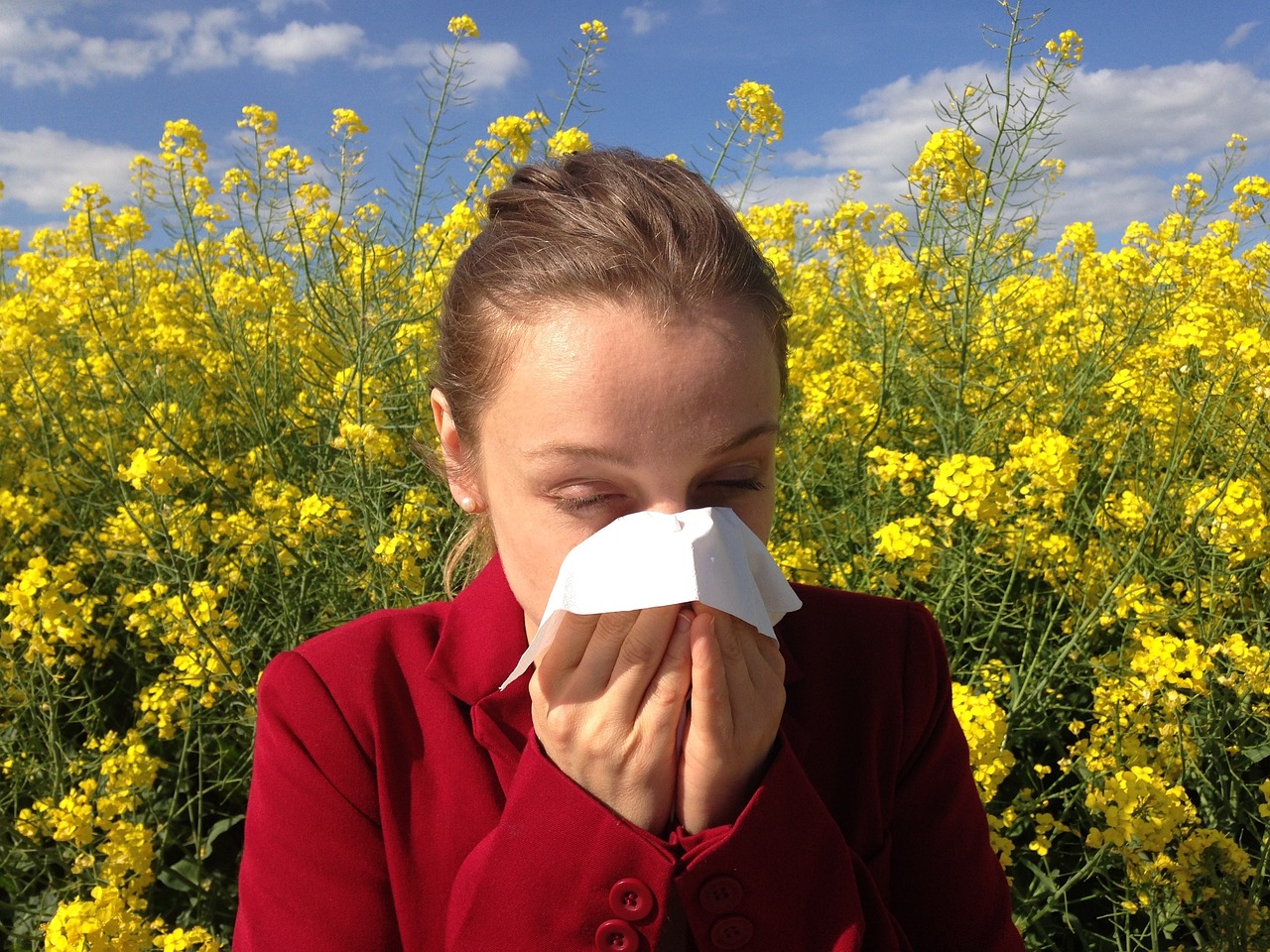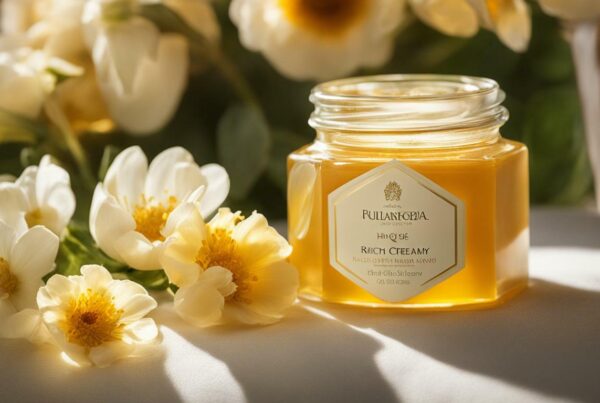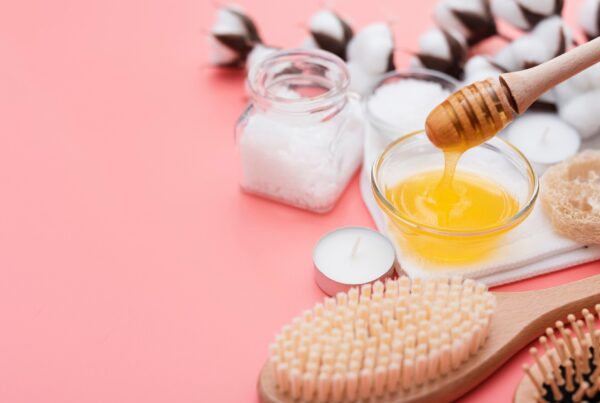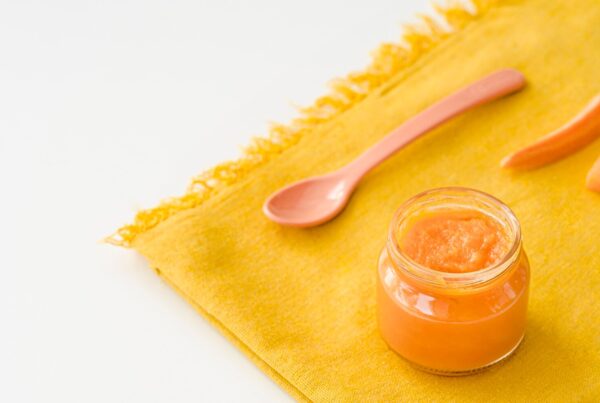
If you suffer from seasonal allergies, you know how frustrating and uncomfortable they can be. Fortunately, nature has provided us with a sweet and natural remedy: honey. Not only is honey a delicious and versatile sweetener, but it also has the potential to offer relief from allergy symptoms. In this section, we’ll explore how honey can help alleviate your allergies and how to incorporate it into your daily routine.
Key Takeaways:
- Honey can provide a natural remedy for allergy relief.
- Incorporating honey into your daily routine can help alleviate allergy symptoms.
- Using honey as a sweetener or in drinks can help you get the benefits of its allergy-fighting components.
Understanding Allergies and Their Symptoms
Before exploring the effectiveness of honey as a natural remedy for allergies, it’s important to first understand allergies and their symptoms. Allergies are caused by the body’s immune system overreacting to a foreign substance, such as pollen, pet dander, or certain foods.
The symptoms of allergies can vary, but often include runny nose, itchy eyes, sneezing, and congestion. In severe cases, allergies can lead to asthma or anaphylaxis.
Common Allergies
Some of the most common allergies include:
- Pollen allergies
- Pet allergies
- Dust mite allergies
- Mold allergies
- Food allergies
It’s important to identify the specific allergen that is causing your symptoms so that you can take steps to avoid it.
Treatment Options
There are a variety of treatment options available for allergies, including over-the-counter medications, prescription medications, and immunotherapy (allergy shots). However, many people prefer to use natural remedies to avoid unwanted side effects.
One natural remedy that has gained popularity in recent years is honey.
The Science Behind Honey’s Allergy Relief
For centuries, honey has been used as a natural remedy for various ailments, including allergies. But how does honey actually work to combat allergies? The answer lies in its composition, particularly the presence of bee pollen.
Bee pollen, the tiny particles that bees collect from flowers, is rich in vitamins, minerals, and antioxidants that can help strengthen the immune system. When consumed regularly, bee pollen can help desensitize the body to allergens, reducing the severity of allergic reactions.
In addition to bee pollen, honey also contains enzymes that help break down histamine, the chemical responsible for allergy symptoms such as sneezing, itching, and congestion. By reducing the levels of histamine in the body, honey can provide relief from allergy symptoms.
It’s important to note that not all honey contains the same amounts of bee pollen or enzymes. Raw honey, which is unfiltered and unpasteurized, is generally the best option for allergy relief as it contains higher levels of these beneficial components.
Tip: Look for local honey at farmers’ markets or health food stores. Local honey can help desensitize the body to allergens specific to your region.
While honey’s allergy-fighting properties are well-documented, it’s important to consult with a healthcare professional before using it as a sole treatment for allergies, particularly if you have a severe allergy or are taking any medications that may interact with honey.
Types of Honey for Allergies: Which One to Choose
Not all honey is created equal when it comes to allergy relief. If you want to use honey as a natural remedy for allergies, it is important to choose the right type of honey. Here are some options:
| Type of Honey | Description |
|---|---|
| Local Honey | Local honey is made by bees that collect nectar from flowers in your area. It is believed that consuming local honey can help your body build up immunity to local pollen, which can reduce allergy symptoms. |
| Raw Honey | Raw honey is unprocessed and unfiltered, so it contains more of the pollen and propolis that can contribute to allergy relief. It is also higher in antioxidants and enzymes than processed honey. |
| Manuka Honey | Manuka honey is a type of honey that comes from New Zealand. It has been shown to have antibacterial and anti-inflammatory properties, which can help reduce allergy symptoms. |
Ultimately, the best type of honey for allergies is the one that works best for you. You may want to try different types and see which one provides the most relief.
Local Honey for Allergies
Local honey is often touted as the best type of honey for allergies because it can help your body build up immunity to local pollen. However, it is important to note that there is limited scientific evidence to support this claim. Some studies have shown that consuming honey in general can provide allergy relief, while others have shown no significant effect.
Despite the lack of conclusive evidence, many allergy sufferers swear by local honey as a natural remedy. If you decide to try local honey for allergies, make sure to choose a reputable source.
Raw Honey for Allergies
Raw honey is another popular option for allergy relief. As mentioned earlier, raw honey has not been processed or filtered, so it contains more of the pollen and propolis that can contribute to allergy relief.
Some studies have shown that consuming raw honey can reduce allergy symptoms, while others have shown no significant effect. However, raw honey is still a healthy and delicious addition to your diet, so it may be worth trying if you suffer from allergies.
Best Honey for Allergies
Ultimately, the best honey for allergies is the one that provides the most relief for you. Some allergy sufferers find that local honey works best, while others prefer raw honey or manuka honey. It is important to choose a high-quality honey from a reputable source to ensure that you are getting the most benefits.
If you are unsure which type of honey to try, you may want to consult with a healthcare provider or a beekeeper who specializes in honey for allergies.
Incorporating Honey into Your Daily Routine
Now that you understand the science behind honey’s allergy relief, it’s time to incorporate it into your daily routine. There are multiple ways to use honey as an allergy remedy. Here are a few:
- Drink honey-infused beverages: Add a teaspoon of honey to your tea, lemon water, or hot toddy for a soothing and sweet allergy relief.
- Spread honey on toast: Substitute honey for jam or jelly on your morning toast.
- Use honey as a natural sweetener: Replace sugar with honey when baking or cooking.
- Add honey to your smoothies: Boost the allergy-fighting properties of your smoothie by incorporating honey into the mix.
Remember, not all honey is created equal when it comes to allergy relief. Local raw honey is the best option for allergy sufferers, as it contains pollen from the local area that can help build immunity to local allergens. Start with a teaspoon of honey a day and gradually increase the dosage over time, if necessary.
With consistent use, honey can become an integral part of your allergy management routine. Try incorporating it into your daily routine and see if you experience the sweet relief it can provide.
Combining Honey with Other Natural Remedies
While honey has shown effective results in managing allergy symptoms, combining it with other natural remedies can enhance its potency. Here are some ingredients that can be combined with honey:
| Ingredients | Benefit |
|---|---|
| Lemon | Lemon has anti-inflammatory properties that can help reduce inflammation caused by allergies. Mixing lemon juice with honey and warm water can help soothe a sore throat and relieve congestion. |
| Ginger | Ginger has natural antihistamine properties that can reduce inflammation and help relieve allergy symptoms. Honey and ginger tea can help soothe cough and congestion. |
| Turmeric | Turmeric contains curcumin, which has anti-inflammatory properties. Adding turmeric to honey and warm milk can help relieve allergy symptoms and improve sleep quality. |
It’s important to note that while combining honey with other natural remedies can be effective, it’s still essential to consult with a healthcare professional before trying any new remedies, especially if you have underlying medical conditions or take medications.
Dosage and Safety Considerations
Although honey is a natural and generally safe allergy remedy, it’s important to use it correctly and with caution.
Dosage Guidelines
The recommended dosage for honey as an allergy relief varies depending on factors such as age, weight, and severity of symptoms. As a general rule, adults can take up to two tablespoons of honey per day, while children should not consume honey before the age of one due to the risk of infant botulism.
It’s important to note that honey should not be used as a sole treatment for severe allergic reactions, such as anaphylaxis. If you experience severe allergy symptoms, seek medical attention immediately.
Safety Considerations
While honey is generally safe, certain individuals may be allergic to honey or experience adverse reactions, such as stomach upset or allergic reactions. To minimize the risk of adverse effects, it’s recommended to start with small doses of honey and monitor your body’s response.
Additionally, it’s important to choose high-quality honey, such as raw or local honey, as processed honey may contain additives or have reduced allergy-fighting properties.
Finally, honey should not be given to infants under the age of 12 months.
Conclusion
Honey can be a safe and effective allergy remedy when used correctly and with caution. By following the recommended dosage guidelines, starting with small doses, and choosing high-quality honey, you can enjoy the benefits of honey as an allergy relief without adverse effects. Remember to seek medical attention for severe allergic reactions and stay safe and healthy.
Honey Allergy Myths Debunked
While honey has been used as a natural remedy for allergies for centuries, there are some misconceptions surrounding its effectiveness. Let’s take a closer look at some common honey allergy myths:
Myth: Honey can cure allergies.
Fact: While honey can provide relief from allergy symptoms, it cannot cure allergies. Allergies are caused by an immune system response to allergens, and honey cannot change the way your immune system reacts.
Myth: All types of honey are equally effective for allergies.
Fact: Not all honey is created equal when it comes to allergy relief. Different types of honey contain varying levels of bee pollen, which is the component that provides allergy relief. Local and raw honey are generally considered the best options for allergy relief.
Myth: Honey can replace allergy medication.
Fact: While honey can provide relief from allergy symptoms, it cannot completely replace allergy medication. If you have severe allergies, you should continue to seek medical treatment and consult with your healthcare provider before reducing or eliminating your medication.
Now that we have debunked some common honey allergy myths, you can make informed decisions about using honey as a natural remedy for allergies. Remember to use honey as a supplement to other allergy management strategies, such as medication and avoiding allergens.
Testimonials and Success Stories
Many individuals have found relief from allergies through the use of honey. Here are some real-life testimonials and success stories:
“I have been suffering from seasonal allergies for years and have tried countless medications with little relief. I decided to try incorporating honey into my daily routine, and it has made a world of difference. Not only do I experience fewer allergy symptoms, but my overall health has improved as well.” – Jane S.
Honey offers a natural and effective remedy for allergies. As one individual has said:
“I have been using honey as a natural remedy for my allergies for years. It has been one of the best decisions I have made for my health. Not only am I experiencing fewer allergies, but I also enjoy the taste and versatility of honey in my daily routine.” – Bob T.
There are many more testimonials like these that showcase the potential benefits of incorporating honey into your allergy management routine. By choosing a natural remedy like honey, you can find relief from seasonal allergies and improve your overall health.
Conclusion
In conclusion, honey is a natural and effective remedy for allergies that has been backed by scientific research. Its anti-inflammatory and immune-boosting properties make it a valuable addition to any allergy management routine. By incorporating honey into your daily routine, you can find relief from seasonal allergy symptoms and improve your overall health.
Whether you choose to consume local honey, raw honey, or honey infused with other natural remedies, it’s important to follow proper dosage guidelines and safety considerations. Honey is generally safe for consumption, but it may cause allergic reactions in some individuals, especially those with a history of bee-sting allergies or pollen allergies.
Embrace the Power of Honey for Allergies
Don’t let allergies ruin your day. Embrace the power of honey as a natural remedy for allergies and enjoy the sweet relief it provides. With its delicious taste and numerous health benefits, honey can become a staple in your daily routine.
Remember to consult with your doctor before using honey as an allergy remedy if you have any underlying medical conditions or are taking any medications. Incorporate honey into your allergy management routine and experience the natural relief it provides.
Say goodbye to runny noses, itchy eyes, and sneezing fits. Say hello to the power of honey for allergies.
FAQ
Q: How does honey help with allergies?
A: Honey contains trace amounts of pollen, which can help desensitize the body to allergens and reduce allergy symptoms.
Q: Is all honey effective for allergies?
A: Not all honey provides the same allergy relief. Local and raw honey are believed to be the most effective options.
Q: How should I incorporate honey into my daily routine for allergies?
A: You can consume honey by adding it to beverages, using it as a natural sweetener in recipes, or simply enjoying a spoonful each day.
Q: Can honey be used in combination with other natural remedies?
A: Yes, honey can be combined with ingredients like lemon, ginger, or turmeric to enhance its allergy-fighting properties.
Q: Are there any safety considerations when using honey for allergies?
A: While honey is generally safe, it should not be given to infants under one year old and those with bee pollen allergies should avoid consuming honey.
Q: Are there any common myths about honey and allergies?
A: Some myths include honey curing allergies completely or that any type of honey will provide allergy relief. These are not supported by scientific research.
Q: Are there any success stories from using honey for allergies?
A: Yes, many individuals have found relief from allergies by incorporating honey into their routines. Real-life testimonials showcase the potential benefits of honey as a natural remedy for allergies.





